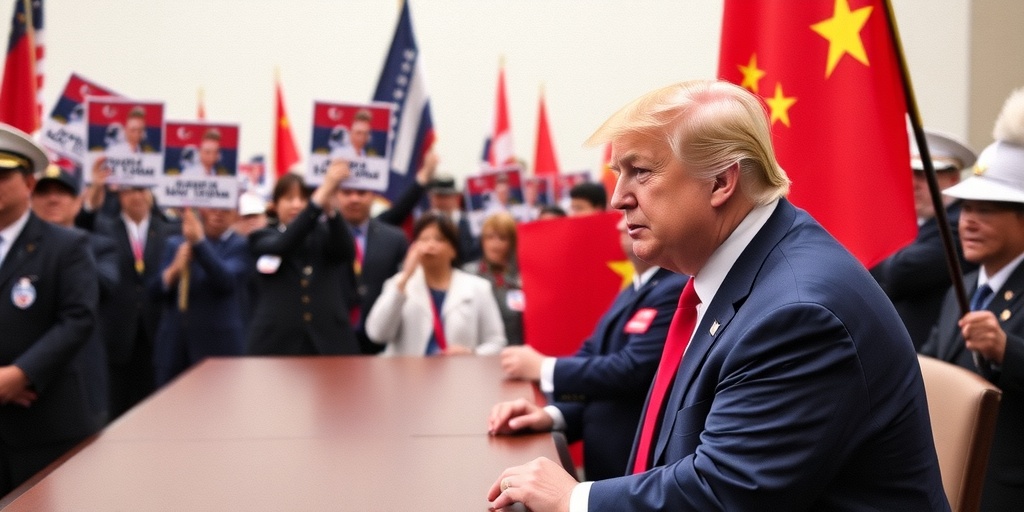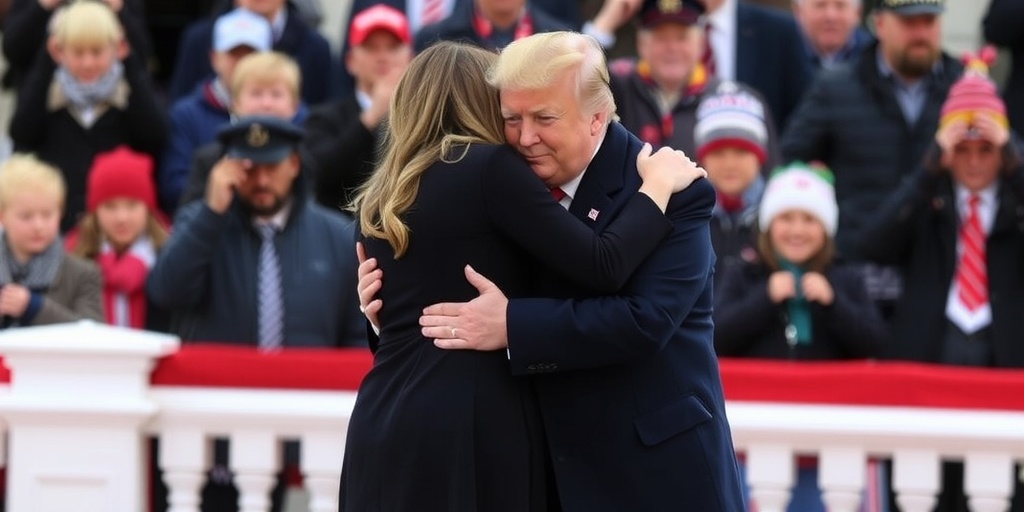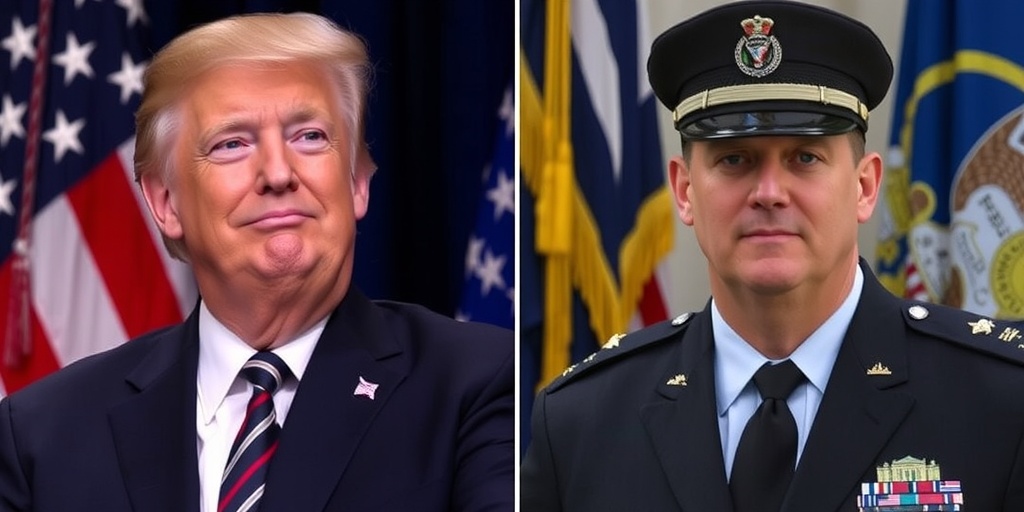Now Reading: Chinese Nationalists Applaud Trump’s VOA Funding Cuts
-
01
Chinese Nationalists Applaud Trump’s VOA Funding Cuts
Chinese Nationalists Applaud Trump’s VOA Funding Cuts

U.S. Government-Funded Media Outlets Face Major Budget Cuts Amidst Political Turmoil
In a significant move that has drawn the attention and celebration of Chinese state media, U.S. government-funded media outlets Voice of America (VOA) and Radio Free Asia (RFA) are facing drastic budget cuts. This development comes after the recent executive order signed by President Trump, which calls for the dismantling of the Agency for Global Media, the federal agency that oversees these organizations. Both outlets have long been under fire from Beijing for their reporting on human rights abuses and political dissent within China.
VOA and RFA have historically provided crucial news coverage to regions where access to reliable information is severely limited, including China. RFA’s broadcasts, in particular, reach Chinese-speaking audiences in Mandarin, Cantonese, Uyghur, Tibetan, and other local languages. For decades, these media outlets have served as a vital tool for conveying uncensored news, especially during pivotal events in Chinese history, such as the Tiananmen Square protests in 1989. During that tumultuous period, VOA expanded its Mandarin service to cover the pro-democracy movement and the subsequent government crackdown, which led to the expulsion of several foreign journalists from China.
Chinese state media, particularly the Global Times, has responded to these cuts with a sense of vindication, labeling VOA as a "frontline propaganda tool" and a "lie factory." The editorial published by Global Times accused VOA of spreading "malicious falsehoods" about China, highlighting what it described as biased coverage of Taiwan, unrest in Hong Kong, and the coronavirus pandemic. Such portrayals underscore the ongoing tension between the U.S. and China concerning the narrative surrounding critical global issues.
After Trump’s executive order, hundreds of employees at VOA were informed that they would be placed on paid leave, raising serious concerns about the future operations of these media outlets. Radio Free Asia reported that its federal grants were terminated abruptly, leaving its staff in limbo and raising questions about the organization’s ability to continue its essential work in reporting on sensitive issues in regions like Xinjiang, where access for foreign journalists has been severely restricted. Notably, RFA has been at the forefront of exposing the existence of internment camps in Xinjiang and reporting deaths occurring within those facilities.
The Chinese government has consistently characterized the influence of American media as a threat to national security and has often retaliated against journalists who collaborate with these news organizations. For example, in 2021, more than 50 relatives of Uyghur journalists working for RFA were detained as part of a systematic effort by Chinese authorities to suppress free speech and control information dissemination.
David Bandurski, director of the China Media Project, commented on the significance of the Trump administration’s actions, suggesting that they pose a major blow to U.S. influence in the region. "In a matter of weeks, Trump seems to have slit the throat of American influence," Bandurski noted, reflecting a broader sentiment among analysts who recognize the implications of diminishing support for independent journalism in authoritarian contexts.
Furthermore, Bay Fang, the president and CEO of Radio Free Asia, expressed her disappointment over the funding cuts, stating that the termination of federal grants represents a "reward to dictators and despots." Fang insisted that such measures undermine the United States’ commitment to supporting those who seek free expression and human rights globally. RFA plans to challenge the order legally, seeking to restore funding and support for their operations.
As the situation develops, former Global Times editor Hu Xijin publicly celebrated the apparent "paralysis" of U.S. government-funded media outlets, suggesting that political infighting within the Trump administration contributed to the current challenges facing these organizations. He framed the situation as a positive outcome for the Chinese Communist Party, expressing hope that the ideological stronghold of anti-China sentiment in the U.S. could be weakened from within.
The implications of these budget cuts extend far beyond the operational capabilities of Voice of America and Radio Free Asia. They signal a potential turning point in the U.S. government’s commitment to fostering free press and supporting the dissemination of uncensored news in regions where authoritarian regimes dominate the narrative. As these media organizations, crucial for providing independent news coverage, navigate this turbulent political landscape, the global community watches closely, aware of the power dynamics at play in the fight for press freedom.
Stay Informed With the Latest & Most Important News
Previous Post
Next Post
-
 01New technology breakthrough has everyone talking right now
01New technology breakthrough has everyone talking right now -
 02Unbelievable life hack everyone needs to try today
02Unbelievable life hack everyone needs to try today -
 03Fascinating discovery found buried deep beneath the ocean
03Fascinating discovery found buried deep beneath the ocean -
 04Man invents genius device that solves everyday problems
04Man invents genius device that solves everyday problems -
 05Shocking discovery that changes what we know forever
05Shocking discovery that changes what we know forever -
 06Internet goes wild over celebrity’s unexpected fashion choice
06Internet goes wild over celebrity’s unexpected fashion choice -
 07Rare animal sighting stuns scientists and wildlife lovers
07Rare animal sighting stuns scientists and wildlife lovers




















